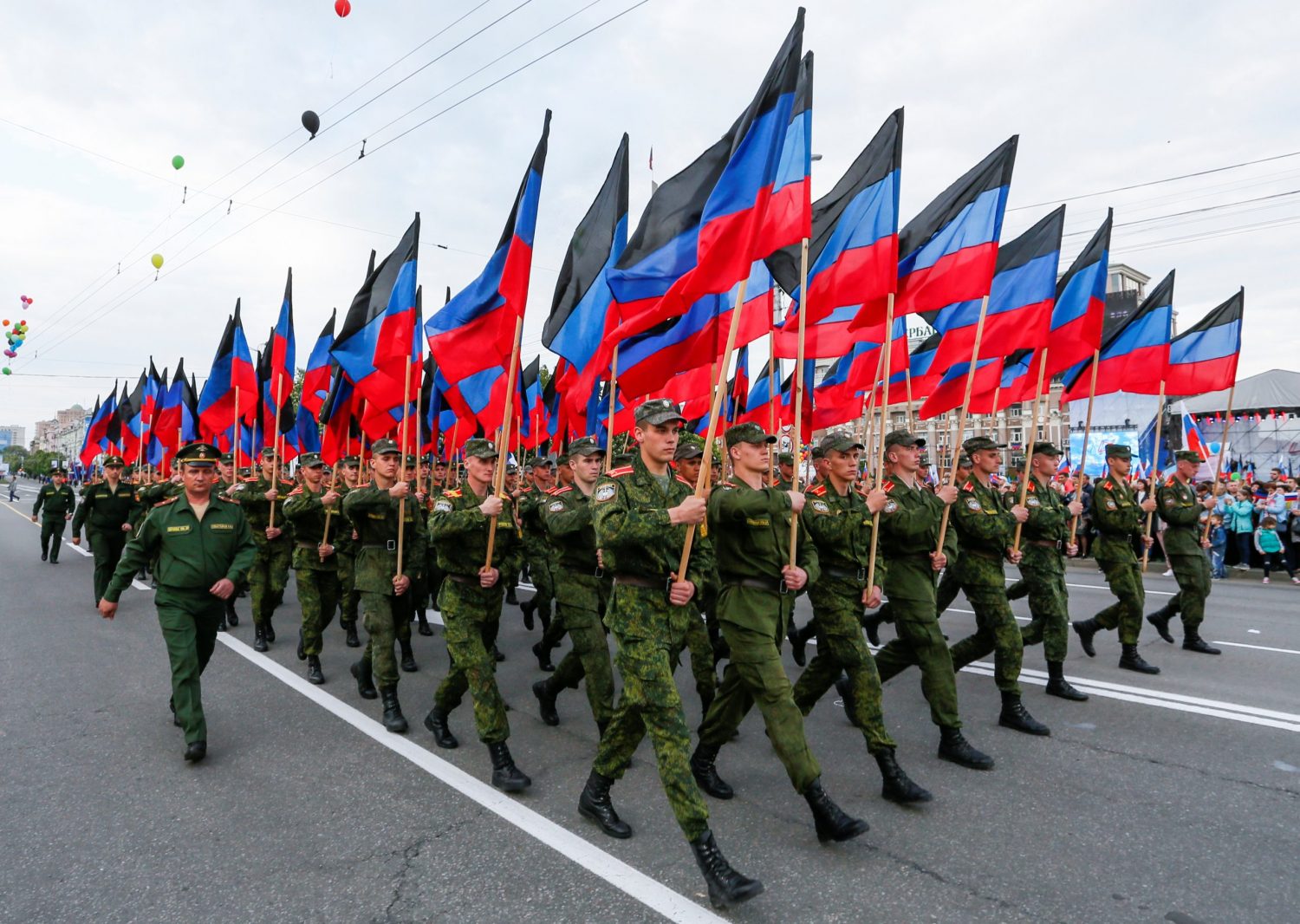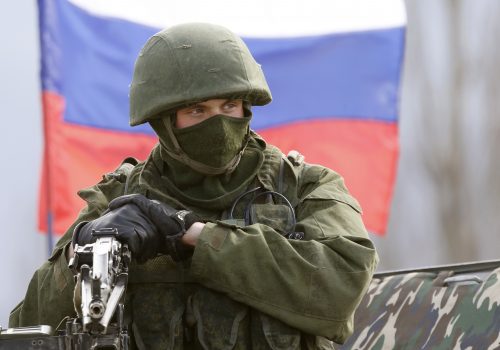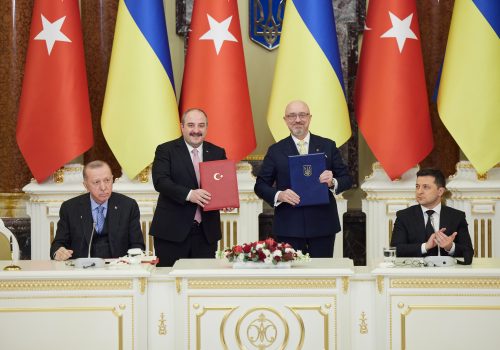Ukraine is currently in the global spotlight amid mounting speculation that Vladimir Putin is about unleash the largest European conflict since World War II. Russia has concentrated troops to the north, east, and south of Ukraine while staging major military exercises along the Ukrainian border and in the Black Sea. According to Western intelligence estimates, everything is now in place to launch a full-scale invasion of Ukraine.
The West has responded to Putin’s saber-rattling by preparing unprecedented sanctions that reportedly have the potential to devastate the Russian economy. Russia is dependent on the West for most of its export revenues and cannot expand or even operate its major industries without access to Western technologies. Meanwhile, although the EU is itself dependent on Russian energy, alternatives can be found. In other words, there is little doubt that Russia would find itself hopelessly outgunned in a genuine economic war with the West.
The powerful potential of Western sanctions is clear but the real issue is whether they will be applied in a firm and consistent manner. Russia understands this very well and is skilled at forms of hybrid aggression that avoid triggering the most severe sanctions. Ever since the spring 2014 seizure of Crimea by “little green men” in unmarked uniforms, the Kremlin’s entire campaign against Ukraine has been a masterclass in deception and denial that has allowed Moscow to conduct a war of aggression while minimizing any penalties imposed by the West.
The hybrid nature of Russian aggression in Ukraine over the past eight years should not be ignored when attempting to anticipate what might come next. While the world watches the Ukrainian border and waits for the terrible spectacle of a full-scale Russian invasion, it is entirely possible that Putin will instead opt for more of the same hybrid tactics that have already served him so well in Ukraine.
It is crucial for Western leaders to keep Putin’s preference for hybrid warfare in mind as they finalize their sanctions responses to any new Russian escalation in Ukraine. US President Joe Biden has already hinted at the potential for diverging opinions on sanctions within the Western camp in the event of a “minor incursion.” The Russian leader will surely seek to exploit this vulnerability.
Stay updated
As the world watches the Russian invasion of Ukraine unfold, UkraineAlert delivers the best Atlantic Council expert insight and analysis on Ukraine twice a week directly to your inbox.
The Kremlin-controlled “separatist republics” in eastern Ukraine remain the most obvious stage for further hybrid hostilities. At present, discussions continue in the Russian parliament over the possible formal recognition of the so-called Donetsk and Luhansk people’s republics. While any move to formally recognize the independence of these “republics” would not in itself transform the military situation on the ground, it could pave the way for a range of alarming future developments.
The Kremlin has commanded and supplied the military formations in eastern Ukraine’s separatist republics since the onset of hostilities in spring 2014. However, if Russia opts to officially recognize the republics, Moscow would be able to supply weapons systems far more openly and on a much larger scale.
Likewise, while Russian officers have coordinated military activities in occupied eastern Ukraine for the past eight years, official recognition would make it possible to dramatically increase the presence of regular Russian troops and mercenary formations. Most ominously, it could set the stage for the deployment of Russian peacekeepers at the invitation of the self-styled separatist authorities. Any peacekeeping mission could also include troops from Kremlin allies such as Belarus.
Russian recognition of eastern Ukraine’s separatist republics would mean a definitive end to the Minsk Accords and would leave the already stagnant peace process in tatters. At the same time, it is unlikely that the international community would classify this recognition as an act of aggression triggering the toughest sanctions.
This makes it a potentially attractive option for the Kremlin. Moscow will also have been encouraged by the West’s almost complete inaction over the distribution of more than half a million Russian passports since 2019 to residents of occupied eastern Ukraine, a process that has effectively transformed the region into a Kremlin passport protectorate.
Eurasia Center events

Following official recognition and the strengthening of Kremlin forces in Russian-occupied eastern Ukraine, Moscow would likely seek to engineer military provocations along the front lines of the simmering conflict. A “Ukrainian attack” on Russian peacekeepers could be staged to serve as a convenient pretext for an advance deeper into Ukraine. This Russian military operation would be disguised as a separatist offensive. Moscow would thus hope to avoid the kind of crippling sanctions currently on the table in the event of a conventional invasion.
For Ukraine, a hybrid assault would be just as devastating as a more traditional Russian offensive. Military and civilian lives would be lost, with more Ukrainian land seized and occupied by the Kremlin. The economic costs would also be severe, both in terms of direct material damage and harm to Ukraine’s overall business climate. Nobody wants to invest in a conflict zone.
This approach offers Moscow the opportunity of outsmarting the sanctions threat while inflicting enough pain on Ukraine to force favorable peace terms on Kyiv. It would in many ways be an enhanced and expanded version of the tactics used by the Kremlin in 2014 and early 2015 prior to the signing of the two Minsk agreements.
Hybrid forms of aggression pose a serious threat to Ukraine which has yet to be acknowledged in the ongoing international discussion over sanctions. This underlines the need to definitively address Russia’s longstanding denials of involvement in eastern Ukraine, which have been allowed to fester in the diplomatic gray zone despite multiple debunkings and a complete lack of credibility.
The current crisis has left no room for any further doubt that Russia is intent on rewriting the entire European security system. Moscow regards the reconquest and subjugation of Ukraine as a key step towards this geopolitical goal.
With Europe’s future peace and stability at stake, Western leaders must send a clear message to Moscow that they will no longer allow themselves to be distracted and divided by fairy tales of “separatist militias” or “people’s republics.” Instead, any attempt to wage covert war through Putin proxies will be met with the same crushing sanctions as those currently being prepared in response to Russia’s threatened invasion.
Pavlo Kukhta is the former Ukrainian Acting Minister of Economy. Viktoria Podhorna is a Ukrainian MP. Mykyta Poturaev is a Ukrainian MP. Yehor Chernev is a Ukrainian MP.
Further reading
The views expressed in UkraineAlert are solely those of the authors and do not necessarily reflect the views of the Atlantic Council, its staff, or its supporters.

The Eurasia Center’s mission is to enhance transatlantic cooperation in promoting stability, democratic values and prosperity in Eurasia, from Eastern Europe and Turkey in the West to the Caucasus, Russia and Central Asia in the East.
Follow us on social media
and support our work
Image: Troops in Russian-occupied eastern Ukraine hold a parade to mark the fifth anniversary of the so-called Donetsk People's Republic. May 11, 2019. (REUTERS/Alexander Ermochenko)




